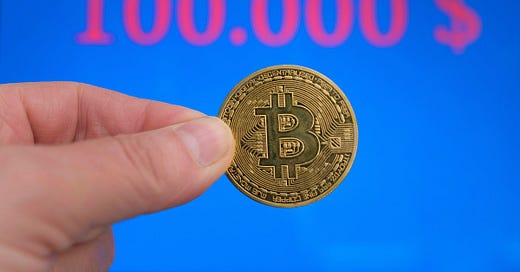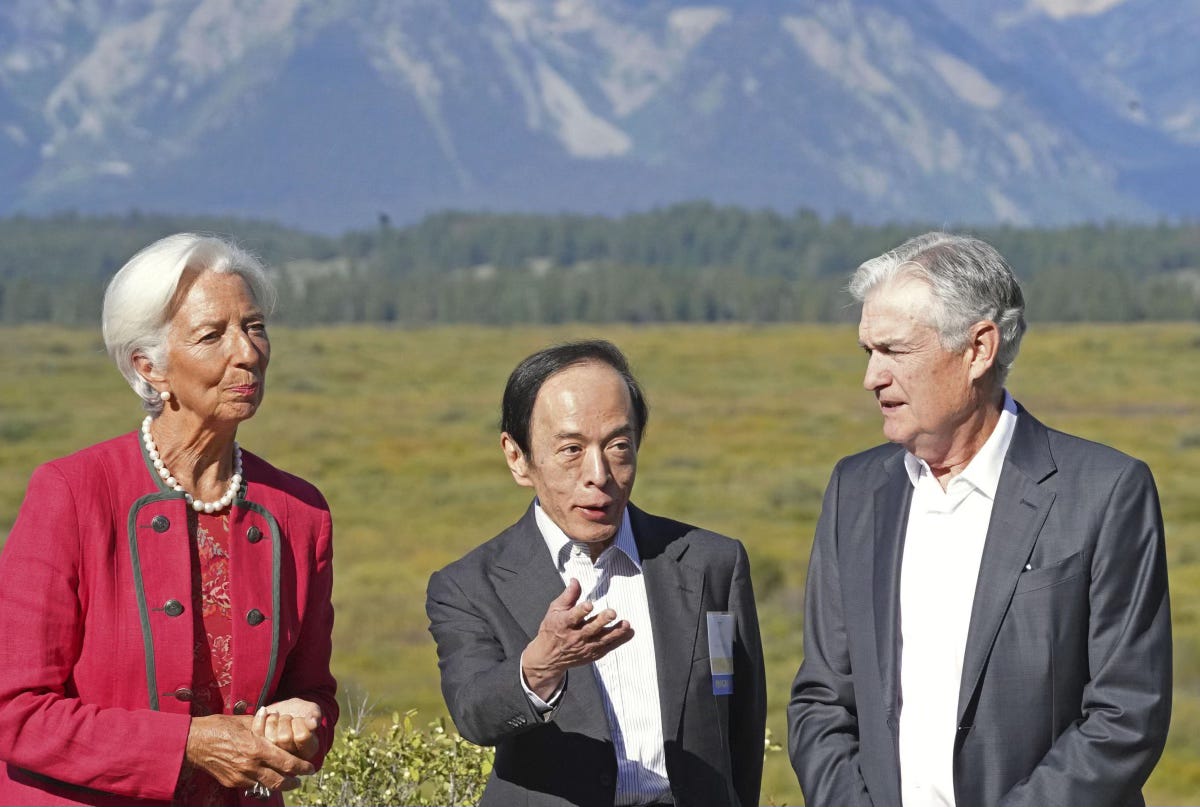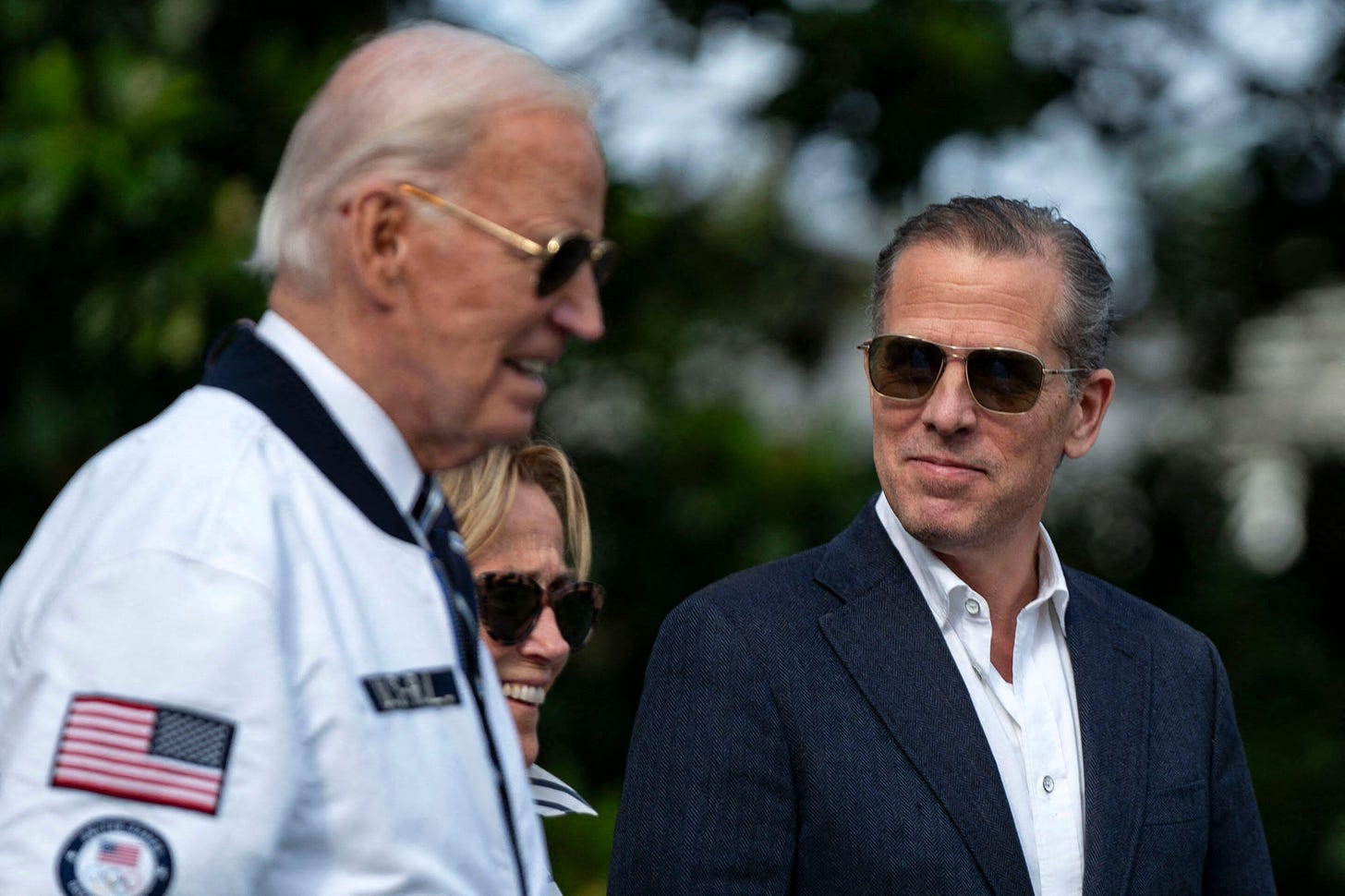“Congratulations Bitcoiners… you’re welcome,” boasted Donald Trump this evening, as he rushed to take credit for a much-anticipated milestone after the price of the world’s largest cryptocurrency surged above $100,000 today for the first time ever.
This record-high valuation is up more than 50 per cent since Trump’s November election victory. And it’s a remarkable turnaround from 2022 when its price plumetted below $16,000 following the dramatic fall of “crypto king”, Sam Bankman-Fried.
As for Trump, who has vowed to make the US the "the crypto capital of the planet", credit where credit is due. That Bitcoin finally passed the $100,000 mark is being attributed to his appointment yesterday of Paul Atkin to head America’s main market regulator, the Securities and Exchange Commission. Atkin is expected to adopt a much friendlier approach to the cryptocurrency sector than the outgoing Gary Gensler, who labelled it an industry “rife with fraud and hucksters and grifters”.
First, a quick recap. Bitcoin is a digital currency that operates without government or central bank oversight. It was introduced to the public in 2009 by an anonymous developer and, while its popularity has inspired the development of many other cryptocurrencies, it was the first - and remains the biggest - decentralised cryptocurrency.
Trump is a convert. As recently as 2021, he labelled Bitcoin a "scam", criticising it for affecting the value of the US dollar during his first tenure at the White House. But on the 2024 campaign trial, he heavily rebranded himself as the pro-crypto candidate.
In May, his campaign began accepting crypto donations, raising millions from the move and, in September, he launched his own cryptocurrency business called World Liberty Financial. He is also proposing a national Bitcoin stockpile, and his ally, Wyoming Senator Cynthia Lummis, is calling for a reserve consisting of one million Bitcoin - nearly five per cent of the global supply - to match the size and scope of the country’s gold reserves.
Bitcoin’s rally is not solely driven by Trump’s newfound enthusiasm for the sector. Mainstream asset managers, including Blackrock, Fidelity and GrayScale, have been heavily buying up Bitcoin ever since January, when the first stock market funds investing in crypto received regulatory approval.
Some believe this latest crypto boom is different from previous rallies, and that Bitcoin is finally being taken seriously. Others caution that it remains a hugh-risk asset.
Aside from its volatility, concerns about cybersecurity risks and the environmental impact of energy-intensive Bitcoin mining remain unresolved.
Crypto enthusiasts like to float Bitcoin as a possible replacement for the US dollar. And another leader who will delight in today’s rally is Nayib Bukele, President of El Salvador, who made Bitcoin legal tender in the central American nation back in September 2021. Meaning supermarkets, hairdressers and other shops are obliged by law to accept Bitcoin alongside the US dollar. Reception to this trailblazing move has been somewhat muted: as of last month, eight per cent of Salvadorans were estimated to have used Bitcoin to make payments, while the dollar remains king in the country. But Bukeleis still hoping it will take off.
Meanwhile, US Fed chair Jerome Powell insists that Bitcoin is “a speculative asset” that will never replace the dollar.
“It’s not a competitor for the dollar. It’s really a competitor for gold,” said Powell, who is almost certainly right that US consumers are a long way off adopting Bitcoin as their main form of payment. Then again, it’s unsurprising that the world’s most important central banker isn’t rushing to predict a bright future for the world’s largest decentralised currency.
Caitlin Allen
Deputy Editor
ON REACTION TODAY
Anthony Peters
Real power lies not with elected politicians but with unelected central bankers
David Waywell
Hunter Biden pardon saga shows why Democrats are so bad at politics
ALSO KNOW
Starmer announces six milestones - The PM has unveiled six “milestones” that his government aims to achieve over the next five years. The goals – benchmarks for judging the progress of Labour before the next election – emphasise putting more money in the pockets of working people, building 1.5 million new homes, treating 92 per cent of NHS patients within 18 weeks, ensuring three-quarters of 5 year-olds are school ready, recruiting an additional 13,000 police officers in neighbourhood roles, and reaching 95 per cent clean power by 2030. The pledges notably did not mention reducing migration.
Syrian Islamist rebels capture key city of Hama - A blitz offensive emanating out of Syria’s northwest has toppled another major city as the regime forces of Bashar Al-Assad retreat south. Rebel forces swept into the city uncontested after Syrian Army forces withdrew under the pretence of “protecting civilian life”. The shock offensive has marked a decisive end to the conflict’s stagnant phase and – if it continues at this rate – could topple Assad from power.
Macron requests Barnier stay on as caretaker PM - President Macron has asked his now-ousted PM to stay on in an interim role while he finds a political replacement following last night’s dramatic no-confidence vote. Macron faces an uphill battle as the hard-left and hard-right hold enormous sway in the current parliament and have rejected the President’s attempts at compromise.
Manhunt continues in NYC after CEO assassination - Authorities have disclosed new information in the murder case of Brian Thompson, CEO of one of America’s largest private health insurance companies, United Healthcare. According to police, bullet casings had the words "deny", "depose", and "defend" on them, a possible nod to healthcare companies’ contentious practice of dubiously rejecting claims of the insured. The masked, hooded assassin is still at large.
FIVE THINGS
Curated by the Reaction Team - Josh Schlicht
The fraught history of the presidential pardon. Angus Brown in Engelsberg Ideas
What is going wrong with Britain’s statistics? asks Andrew Sentance in CapX
Why did Syria’s Civil War Reignite? Raja Abdulrahim examines in the New York Times
Marriage of Convenience: How the European Far Right and Far Left Converged on China, Ivana Karásková in The Diplomat
I’m a university tutor: some of my students can’t speak English, an anonymous writer reveals in The Times








Couldn't find it on wayback machine. For now I have provided a link to it here (including the original link (https://reaction.life/bitcoin-will-change-the-world/) which may update when the article is migrated over):
https://alexstarling77.substack.com/p/an-interesting-article-on-bitcoin
I thought your article by "Lucid Ledger" a few months ago was quite interesting. I couldn't find it on your new site but it might be on Washback machine...